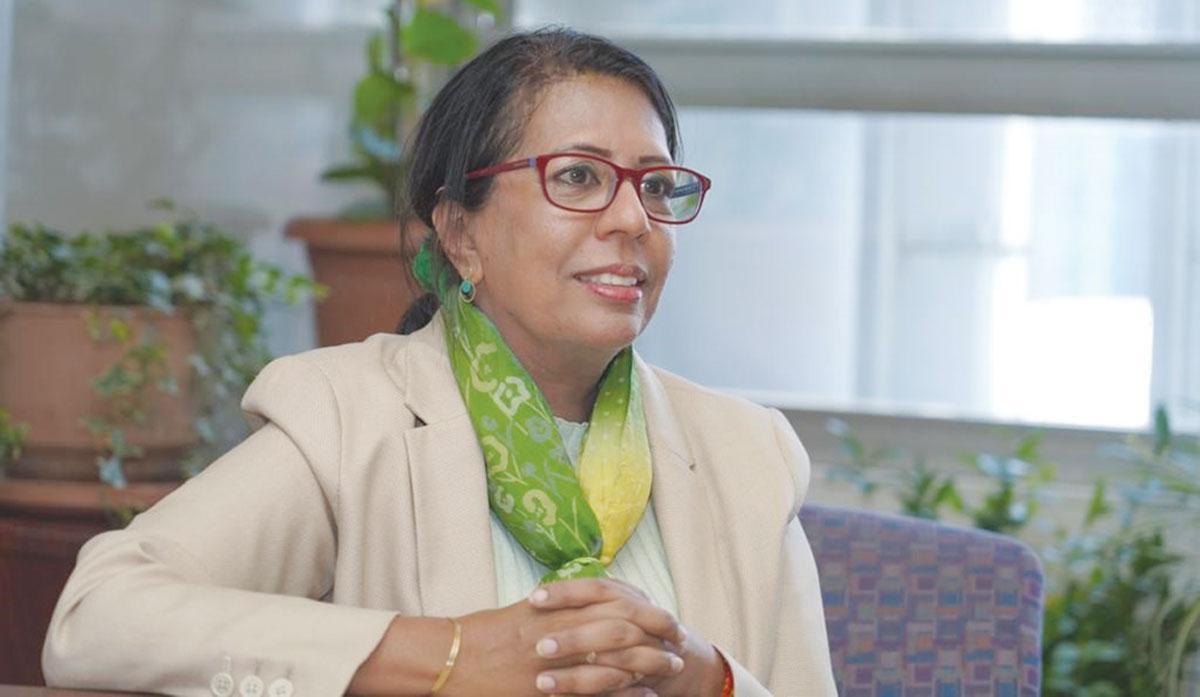Africa-Press – Mauritius. Nita Deerpalsing, had a long past involvement in the local political cauldron as a vocal Labour MP from 2005 to 2014, who was also Deputy Chairman of Committees in Parliament and the Director of Communications of the Mauritius Labour Party as well as member of the Committee on Economic Democratization of the PMO.
Since 2015, she moved on to Paris and Addis as UN cadre and we felt her twin outlook and her own personal beliefs would provide our readers with a useful insight from someone who was never shy to fight for her convictions even if at times controversial. In this candid interview, she holds back no punches on issues facing Mauritius.
We have no doubt done quite well for many years, and that has been confirmed by international rating agencies on a number of governance and the economic performance of the country relative to most African countries, but that seems to be no longer the case.
Since 2015 you have had the opportunity of a notable international professional journey as a director first at Organisation Internationale de la Francophonie, then at the UN Economic Commission for Africa; what does that inform you about the whys and wherefores of what’s happening there?
Nita Deerpalsing: Let us start by seriously debating on the proposition that ‘we have been doing quite well’.
And let us honestly recognize that the clock certainly did not start ticking in 2015. If we would go strictly by GDP numbers, comparative classifications, we could say that we have been able to manage.
Yet if we look at debt level, the picture is very bleak. I would submit that if we were to consider the worrying numbers of health indicators, for example, we could not say we are doing well. Literally speaking. Not when we are in the top hit parade of hypertension, diabetes, etc.
Can women walk safely on the streets? Does every single citizen sense that they live in a rights-based, rule-based society? Are parents without worries when their kids take the bus to school as our generation did in the past? Is the drug industry now too big in the economy to fail?
So, I guess it all depends on what definition of ‘doing well’ we use. On top of that (and perhaps this contributes to the dire health indicators), the sense of overall well-being has been elusive for most of the population.
* The impacts of colonialism, tribalism and not the least coups led by petty colonels have at different times been responsible for halting or even reversed economic development in some African countries.
But would there be one or multiple factors that have made spectacular economic progress, once-thought-unlikely, possible in places like Rwanda, Angola, Ethiopia, Nigeria, Kenya, etc.? For sure, Rwanda is far ahead of many countries on several indicators.
This is even more impressive because only recently – in 1994 – it went through a most tragic period of genocide/civil war with up to one million people dead. To have been able to reconstruct and turn things around must have taken a resolve of steel. And a relentless focus on results.
When a leader has such a level of focus on his or her mission and measures himself/herself regularly against set objectives, then leadership is about achievements, not merely holding/wielding power.
Only under such leadership attributes, important strides are possible. Enlightened leadership is about having a vision past so-called political realism under one’s nose and rallying the energy of the people to create a new horizon.
This is just not possible with leaders who only end up allowing their minds to be conquered by those strictures and therefore end up as cowardly followers of same.
After 2022, Mauritius again tops the list of the happiest countries in Africa, according to the World Happiness Report. Besides the country’s natural beauty and stability, the report says there is growing economic opportunity.
Isn’t that good news? These relative comparisons are interesting but do not incite real growth. Rather than comparing myself to others, I much prefer comparing myself with the path I have travelled. This is much better to produce genuine growth. This stands true at the personal level, at the professional level and at the national level too.
Happiness at the national level is also about the work undertaken to remove barriers which block people’s aspirations, significantly reduce the population’s vulnerabilities to create an environment where people can live with a sense of peace of mind, enjoy decent health and well-being. Incremental social progress for the large majority of the population, through electoral promises, is not my idea of a holistic vision.
When the very vulnerability of people is a weapon of mass destruction via electoral promises, that does not nurture any genuine happiness but rather perpetuates an environment of mercantile negotiation, which subliminally erodes fundamental values upon which the well-being of a nation can be built.
It is true that some local bean counters talk about ‘growing economic opportunities’ tied to so-called smart cities. Only visionless bean counters can rejoice about the widespread smart concreting (bétonnage) of the island.
For More News And Analysis About Mauritius Follow Africa-Press







